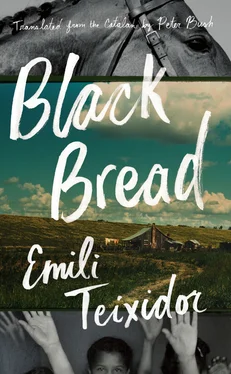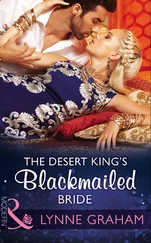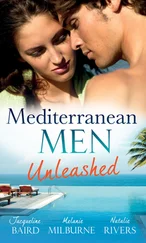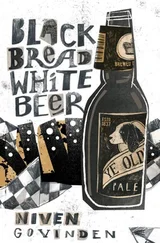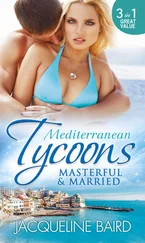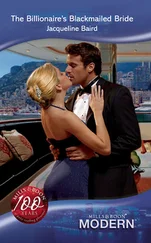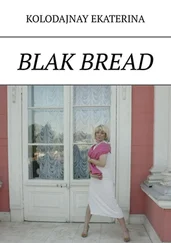He didn’t complete his sentence as if there might have been other explanations.
The to-and-fro-ing gradually slowed down, and at lunchtime, when we walked home, the horse was on the edge of a ploughed field close to the meadow where we’d found it, with three well-dressed men, one being the mayor, Filthy-face, as Dad Quirze called him, and other people, with a couple of civil guards in close attendance. They were discussing whether the field’s owner would give permission to bury the horse there or if it would be better to do it elsewhere.
Those in the farmhouse were now aware of what had happened.
“It’s not a horse from these parts,” said Grandmother Mercè. “The men would have recognized it if it was.”
Aunt Ció and Enriqueta, who’d just arrived from her dress-making, said nothing; their minds were more focused on what they were cooking. That day the men didn’t come home for lunch.
“There are animals,” Grandmother went on as if to distract us from something that seemingly preoccupied Ció and Enriqueta that we couldn’t fathom — just like when she was storytelling by the fireside—“who can scent death, I mean they can guess which day they are going to die. They know their end is nigh. The Red Farmhouse had a mare who’d been born in La Bruguera that the tenants bought when she was a foal to mate with a young purebred they had. Well, after years at the Red Farmhouse, after giving birth to a host of colts that were scattered around the district, Pack-of-hounds, which is what we called her, because she always brought the hunting hounds behind her, when she was very old and knew she was about to die, one night, when we were all asleep, she escaped from the farm — she was so old they didn’t keep her tied up inside — and slowly made her way to La Bruguera, that’s not very far, as you know, and the next morning, when the new day dawned, the hands found her dead by the door of the stable where she had been born. How mysterious, it’s hard to warrant how clever these animals are!”
“Do you mean the dead horse we found had escaped and was running away from death?” asked Quirze, as if he didn’t believe a word.
“Pack-of-hounds wasn’t running away from death, quite the contrary, she was rushing to find it,” laughed Grandmother Mercè and we thought it was odd of her to laugh when talking about such sad things.
“I thought that when they saw the end was round the corner, they fled to see if there was any way they could escape,” persisted Quirze. None of us could get our heads round the idea that anyone, let alone an animal, could go out to welcome death like a revered guest.
“Ay!” exclaimed Grandmother Mercè as if she was about to teach us a lesson that was way beyond us. “Animals have a special instinct for finding remedies for their ailments: when they are injured they know to select burning bush or gas plant, and when a scorpion bites they immediately look for oregano. But when they realize that death is nigh, they aren’t alarmed and don’t try to flee in terror like us, they submit and greet it with resignation, as we do when we can’t go out because it’s pouring down, though we hope the rain will be a boon and bring buckets of water, a good harvest and blossoming fields. And if they can, if they have any strength left, like Pack-of-hounds, they go out in search of death, preferring to meet it in a pretty spot. If it weren’t like that, where would the horses that used to die in battle have found their valour? Knights fought for a cause, their personal gain and honour, but the horses accompanying them wanted to encounter a worthy end outside the stable, on a field of flowers where death was master.”
“Mother,” whispered Aunt Ció, “don’t say such things.”
“Why do you keep putting fear into the children’s heads?” nodded Aunty Enriqueta.
“Fear? What fear?” retorted Grandmother. “Animals don’t fear death. And there are a lot of things we should learn from them and try to imitate.”
“When Mother holds up a rabbit to break its neck with a stick,” riposted Quirze obstinately, looking at Aunty Ció, his mother, out of the corner of his eye, “it wriggles as if it would like to escape. And roosters and hens cackle and run when they are going to cut their necks and put them in the pot.”
Ció turned her head and stared at Quirze.
“Because rabbits and roosters don’t want to die,” chuckled Grandmother. “I’m talking about old or sick animals who’ve lived their lives and are looking for a change.”
The loud, angry voices of men arguing reached us from the kitchen. The three women exchanged worried looks. Initially we could only make out the voices of Dad Quirze, Uncle Bernat and Jan the hand who was with them, and then the voices of the village mayor, Filthy-face, a plump, stunted man with a puffy face and no neck, and a civil guard talking in clipped Andalusian Spanish, Corporal Martínez; the other guard was silent and we didn’t recognize him.
“I’m under no obligation to bury that animal!” shouted Dad Quirze in his most hostile tone of voice.
The voices of the mayor and the civil guard were quieter, more relaxed, and wafted our way like a whisper and it was impossible to make out what they were saying: neighbourhood, community, authority, owner…, and in Andalusian Spanish, rezponsabilidá, órdenez, gobie’no civí, comandanzia …
“It’s one thing for Mr. Manubens the master to agree and quite another for us to have to do the work!” countered Dad Quirze.
The municipal officials spoke up again, now considerably more irritated, files, investigations, patrols… and in Castilian Spanish, cuarta región militar, consecuencias desagradables, que cada palo aguante su vela , we all have our crosses to bear…
The women hastily put our plates on the table and urged us to eat up and not be distracted.
Enriqueta and Ció, the two sisters, shifted plates and pans, creating a racket with ladles and milk jugs to shut out the men’s conversation. Grandmother listened silently, head down and worried. Suddenly, we heard the corporal of the Civil Guard: “ Aténgaze a laz consecuenciaz !”
And immediately after, the mayor’s hoarse, strident voice shouting: “For fuck’s sake! I don’t want to see one hair of that animal on the path tomorrow!”
Silence descended like a gully into the hills. We watched the mayor and a couple of civil guards walk past the window.
Dad Quirze, Bernat and the hand entered the kitchen where we’d just eaten lunch. Grandmother gestured to us to go back to class and not wait around. Ció put apples in our pockets as we went out through the porch.
Dad Quirze stood still in the middle of the kitchen, his face redder than ever, his small, blue eyes flashing angrily like steel blades, his paunch heaving up and down as if he’d been running a race. Bernat planted himself in front of the fire. Jan the hand sat down on the chair with the broken seat, head bowed.
Before walking out the door, we heard Dad Quirze curse: “The bastards! A plague on the bitch that spawned them!”
The eviscerated horse was still lying in the same place at the edge of that field, with even more flies buzzing around and a worse stench in the air. We ran past holding our noses.
By evening, when we went home, with Oak-Leaf back in our gang, the horse had gone. A white sandy patch, that Quirze said was lime, covered the place where we’d seen it. Grass had been flattened and plants by the side of the path had been demolished as if they’d been forced to drag the horse along. There was no trace of the carcass.
We went into the woods feeling more excited than ever. In the twilight we all had the death of that unknown horse on our minds and started telling animal stories, as always happened when others ran out of steam or we teetered on the perilous brink of risqué conversations about peeping toms and flashers or Oak-Leaf’s secrets.
Читать дальше
